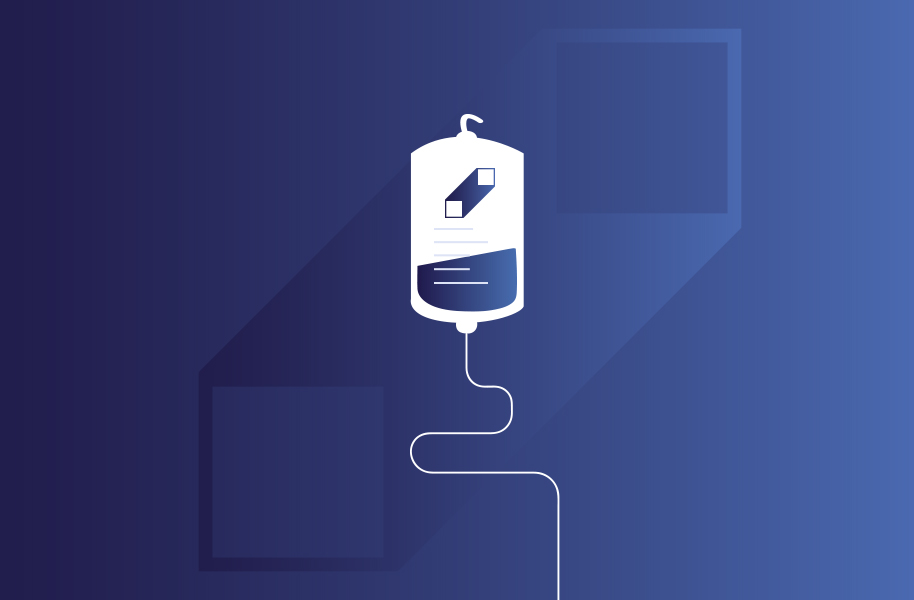
Lucidya’s Contribution to Healthcare Customer Experience
In the dynamic landscape of healthcare, patients now seek more than just medical treatments; they desire a comprehensive experience encompassing empathy, respect, and effective communication. Gone are the days when patients were solely focused on obtaining prescriptions; today, they crave personalized attention and acknowledgment of their individual needs throughout their treatment journey.
This transformation signifies a paradigm shift in healthcare, placing patient experience at the forefront of priorities. Patients are no longer passive recipients of services but are regarded as customers deserving of value and respect.
Recognizing this shift from “patient” to “customer,” healthcare providers are increasingly aware that delivering quality care involves more than just medical interventions. It entails providing a seamless and tailored treatment experience tailored to each patient’s unique requirements.
In this context, Lucidya emerges as a pioneering innovation poised to revolutionize patient care and experience management. How exactly can it contribute to the satisfaction of your patients?
What is Healthcare Customer Experience ?
Customer Experience in Healthcare encapsulates their overall perception and journey as they engage with healthcare providers, facilities, and services. It encompasses every interaction and touchpoint within the health system, spanning from the initial seeking of medical assistance to post-treatment follow-up.
This experience extends beyond mere clinical treatment, encompassing the emotional, psychological, and practical dimensions of the patient’s health journey.
In essence, the concept of customer experience in healthcare revolves around treating patients as esteemed customers and emphasizing their satisfaction, comfort, and well-being. Its objective is to forge a positive and memorable journey for patients, akin to how businesses endeavor to craft enjoyable experiences for their customers.
The Current State of Customer Experience in the Healthcare Sector
It is crucial to assess the current landscape of customer experience within the healthcare sector, pinpointing both the challenges and opportunities encountered by healthcare institutions in their pursuit of enhancement. However, existing statistics suggest a notable deficiency in this realm, with a substantial 95% of customers reporting negative experiences with healthcare institutions.
A study conducted by PwC, titled ‘Experience is Everything,’ underscores the significance of positive experiences in healthcare, revealing that they wield greater impact (78%) compared to other sectors such as banking (75%), restaurants (74%), and hotels (74%).
Further insights from an Accenture study indicate that 64% of consumers exhibit readiness to switch healthcare providers in pursuit of a superior overall experience. Additionally, patients who undergo positive experiences with healthcare organizations are more inclined to refer friends and family and revisit for future treatments.
Today, healthcare professionals are prioritizing the delivery of exemplary customer experiences, with 49% acknowledging customer experience as a top priority. Furthermore, an overwhelming 81% of healthcare companies are directing investments towards technology aimed at enhancing the customer experience, thereby fortifying the potential for success within the healthcare domain.
Exploring the Most In-Demand Healthcare Services
Amidst the ongoing evolution in healthcare, there arises a quest for services capable of addressing the expanding health needs of both individuals and communities. Thus, it becomes imperative to identify and comprehend the most sought-after healthcare services, with the aim of enhancing the quality of healthcare provision and effectively tackling contemporary health challenges.
1. Nurses
Nurses hold a pivotal position in delivering healthcare to patients, with their responsibilities spanning the regular evaluation of patients’ conditions through vital sign measurement and symptom monitoring. Additionally, they administer medical treatments such as medications and intravenous solutions based on physicians’ directives.
Working in collaboration with the healthcare team, which comprises doctors, physical therapists, and psychologists, nurses strive to guarantee patients receive optimal care. Moreover, they extend emotional support and counseling to patients and their families throughout various stages of illness.
2. Physician Assistants
Physician assistants collaborate closely with physicians to deliver comprehensive patient care, undertaking thorough physical examinations, and facilitating the diagnosis of diseases and health disorders by ordering diagnostic tests such as radiology and laboratory tests.
Additionally, they actively participate in devising suitable treatment plans in conjunction with physicians, prescribing medications and treatments, and offering assistance during minor surgeries. Additionally, they assume a significant role in patient education, providing insights into health conditions, treatment strategies, and promoting healthy lifestyles.
3. Managers of Medical and Health Services
Medical and health services managers oversee the daily operations of healthcare facilities, including hospitals and clinics. Their duties encompass managing budgets and financial resources, ensuring adherence to health regulations and laws, and formulating operational policies and procedures to uphold standards of care and ensure patient safety.
Furthermore, they facilitate coordination among employees across different departments such as nursing, laboratories, and radiology. They also focus on optimizing operational efficiency and services while identifying areas for improvement. The contributions of these managers are pivotal to the achievement and longevity of healthcare organizations.
4. Physical Therapists
Physical therapists specialize in aiding individuals with physical disabilities or chronic pain to restore mobility and physical functionality. Their process typically involves assessing the patient’s condition and diagnosing motor, musculoskeletal, or bone issues. Subsequently, they devise individualized treatment regimens comprising targeted exercises aimed at enhancing strength, flexibility, balance, and range of motion.
In addition to exercise protocols, physical therapists may employ therapeutic modalities such as ultrasound therapy or electrical stimulation to alleviate pain and facilitate healing. Moreover, they play a crucial role in patient education, imparting preventative strategies to avert the exacerbation of injuries.
Essential Analysis Tools to Empower Hospital in Personalizing and Enhancing Patient Experience
Utilizing appropriate analytics tools is fundamental for gaining insight into patient needs and pinpointing areas requiring improvement, be it in medical care or patient experiences. In the subsequent paragraphs, we will delve into several suitable analysis tools for hospitals aimed at enhancing and customizing the patient experience.
1. Patient Satisfaction Surveys
One of the oldest and most prevalent methods for comprehending patient experiences involves gathering data directly from patients through structured questionnaires. These surveys encompass various facets of the hospital journey, spanning from admission and reception to care and discharge. They can be administered online, via phone, or in person, offering direct insight into the strengths and weaknesses of the patient experience.
2. Big Data Analytics
Hospitals generate vast volumes of data from diverse sources, including electronic patient records, health information management systems, and appointment scheduling systems, among others. Big data analysis techniques such as data mining, pattern detection, and predictive analytics can be harnessed to extract valuable insights from this data trove. For instance, these techniques can unveil factors linked to subpar patient experiences or pinpoint specific patient cohorts in need of specialized care.
3. Social Media Analytics
In contemporary times, patients frequently express their experiences and opinions on social media platforms like Facebook, X, and Reddit. Hospitals can leverage social media analytics tools to track these discussions, gauge sentiment, and assess opinions regarding the healthcare services they offer. Such analyses offer real-time and unfiltered insights into patient experiences, circumventing potential biases inherent in surveys.
4. Digital Process Analysis
These tools analyze the digital operational processes within hospitals, pinpointing weaknesses and recommending enhancements to bolster efficiency and effectiveness and contribute to a superior patient experience.
5. Patient Experience Programs
This technology aids medical facilities in collecting, analyzing, and managing patients’ sentiments regarding their interactions with healthcare services. It facilitates the measurement of patient outcomes, loyalty, and retention, ultimately enhancing service quality and fostering patient engagement.
Improve your Patients’ Experience with Lucidya
In today’s era, patient experience stands as a pivotal factor in the success of any hospital or healthcare facility. Satisfied patients exhibit greater commitment to treatment and are more inclined to revisit the same healthcare facility in the future. Conversely, a single negative experience may lead patients to lose confidence and seek alternatives.
Hence, platforms like Lucidya emerge as industry leaders, offering invaluable assistance in analyzing and managing customer experience. They serve as potent tools for hospitals and health facilities by:
Lucidya possesses the capability to analyze thousands of comments and posts across various social media platforms pertaining to hospitals and healthcare providers. Consequently, hospitals can acquire profound insights into patients’ opinions and experiences, surpassing the limitations of conventional satisfaction surveys.
2. Improving patient experience
Through the analysis of big data sourced from social media, hospitals can pinpoint significant vulnerabilities and issues impacting the patient experience. Armed with this information, they can take proactive steps to rectify these issues and enhance various aspects such as quality of care, customer service, facilities, and internal processes.
3. Prompt response to complaints and concerns
Patients frequently express their complaints and concerns on social media platforms before reaching out directly to the hospital. By actively monitoring these platforms, hospitals can swiftly detect these issues, enabling prompt responses that mitigate escalation and safeguard their reputation.
4. Protecting the reputation of the health brand
In the modern era, negative information has the potential to rapidly disseminate online, posing a risk to a hospital’s reputation. Utilizing tools such as Lucidya, hospitals can monitor online discourse about their institution and take proactive measures to manage their reputation before situations escalate.
By leveraging platforms like Lucidya, hospitals can notably elevate the quality of their services, fortify their reputation, and cultivate deeper connections with patients. This, in turn, fosters improved healthcare outcomes and long-term profitability.
Don’t be left behind! Use the latest technology with Lucidya to keep your patients happy.
Conclusion
In today’s fiercely competitive landscape, managing customer experience is not just advantageous, but imperative for survival. Thus, utilizing platforms like Lucidya has become indispensable to guarantee top-tier healthcare and exceptional patient satisfaction. This, in turn, fosters superior healthcare outcomes, enhances customer loyalty, and ultimately drives long-term profitability. Investing in such innovative technologies is paramount to maintaining patient satisfaction and loyalty in the healthcare sector.









